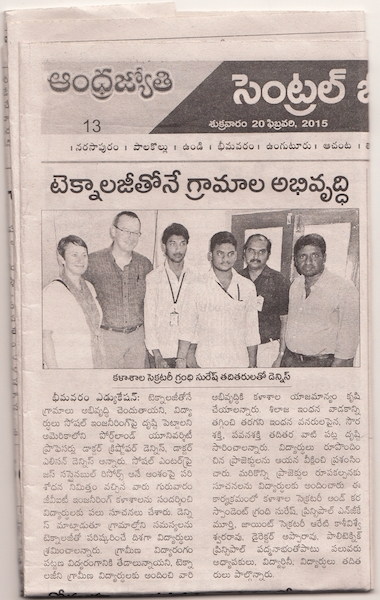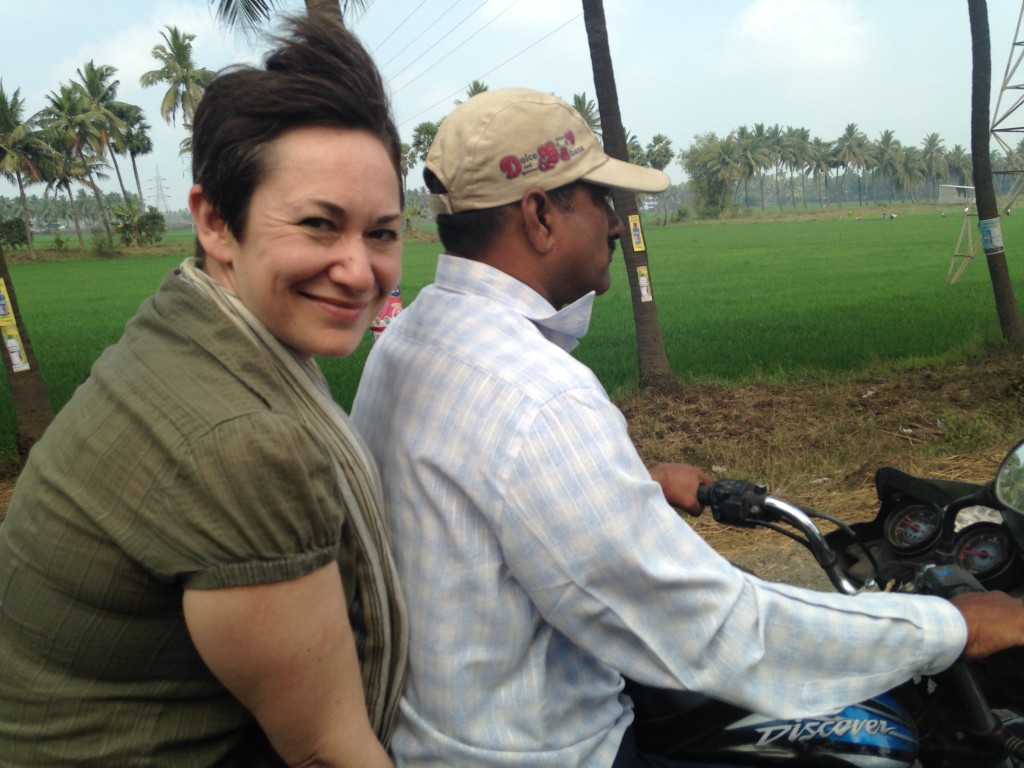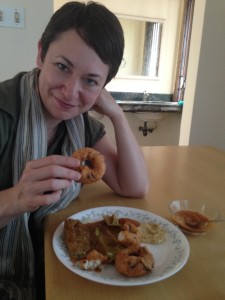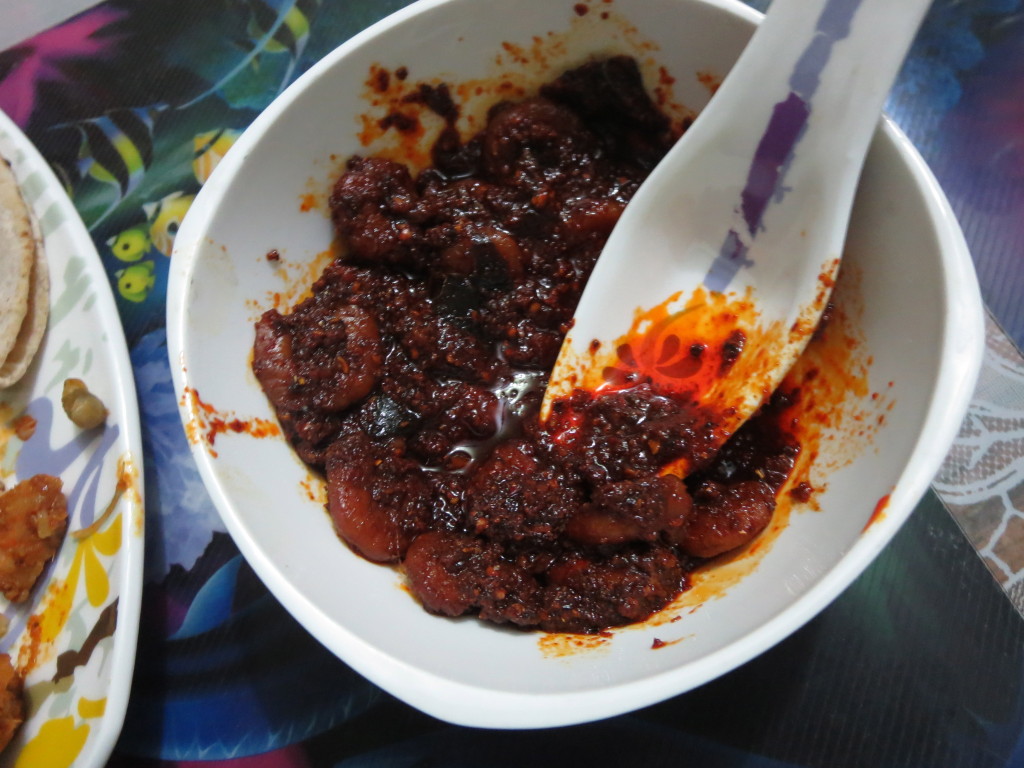
Beyond Professionalism
The social context for our time in Bhimavaram with the Byrraju Foundation is important: two western Professors traveling to rural Andhra Pradesh are VIPs.
We pose for snaps (photographs) with every local official. Grandhi Varalakshmi Venkatarao Institute of Technology sends a chauffeured car for our visit and the school’s administrators meet us at the door, gifting both Alison and I with formal bouquets of flowers. We are featured in the local newspaper.

Our local newspaper clipping features a snap of the VIPs with award-winning students, their teacher, and the school’s top brass.
It is an extra treat, and a demonstration of a deeper connection, when our day-to-day colleagues—the water coordinators and special projects staff—take pains to bridge the potential isolation of the VIP treatment.
How do we know the social ecosystem is changing?
Transport. Instead of touring every day in a large, air-conditioned 4×4, the water coordinators invite us to zoom about on the backs of their motorbikes. We make visits to smaller, closer villages just the way they would.
Eating Together. There is a custom in Andhra Pradesh (and it may apply elsewhere in India, I haven’t had the experience) that hosts serve their guests, but do not eat with their guests. Instead, the hosts eat after their guests depart.
How is this manifest in our workplace? When it’s lunchtime, Vamsi Alluri and Bhanumurthy Penumaka politely escort us to a restaurant and then (early in the week) disappear for 30 minutes, returning to ensure we are somewhere pleasant for a ‘rest’ while they have their meal. Later in the week they will sit with us, conversing while we eat, then disappear to eat lunch.
One day, when we are visiting a distant village in the air-con 4×4, we all eat together: Alison, me, Bhanumurthy, one of the CARE chronic disease coordinators, Mr. Srimivasa Raju, and our driver, Mr. Ramachandra Raju. Because it is so common for Americans to eat with one another, it takes some time for us to understand the unusual nature of the moment.
Local Food. At first we are taken to the more posh hotels in town for lunch: healthy but generic. We make quiet requests. “Where do you eat?” “What will people eat during the Shiva festival?” “Do locals eat the fish and prawns produced by local aquaculture?” Then, for dinner, we’re taken to a roadside, open-air curry shop run by a former member of the Foundation staff. The flavor takes a giant leap forward. When we dig in with gusto the floodgates start to open.
Because of ongoing construction in the Foundation’s guesthouse, the kitchen is out of commission and it appears to be Vamsi’s responsibility bring in our breakfast. Each day a new item appears: a thicker, spicier sambar with the idly, those donut-shaped green onion fritters that smell so heavenly. He never runs out of tricks.
On Friday we enjoy a special treat: prawn pickle. It turns out the locally grown prawns are an expensive, special occasion food. Yes, serving prawns to VIPs might be expected, but it would most likely be in the context of a hotel preparation. Instead, the family of one of the water coordinators, Mr. Shiva Prasad Varma, cooks our prawn pickle. These small prawns, fried dry, then mixed with a ginger-garlic paste, citrus and vinegar, and liberal dose of mustard and fenugreek seeds, are a spectaular burst of flavor that make us grin from ear to ear.
Their willingness to extend their own creations, to share pictures of daughters at their Langa Voni ceremony, and their growing curiosity about our lives lets us know we have more than colleagues at the Byrraju Foundation.
Here’s to across-the-world friendships,
Chris



I am hoping that you can duplicate that prawn pickle at some point in your culinary career. That sounded exceptional.
The meal at which we had the prawn pickle was exceptional…I would reach my culinary zenith were I to duplicate the entire spread we got then.
Here’s the trade: we fly to Tillamook, I make the prawn pickle. Really. This time. Tillamook.
Your passenger, not your copilot,
Chris